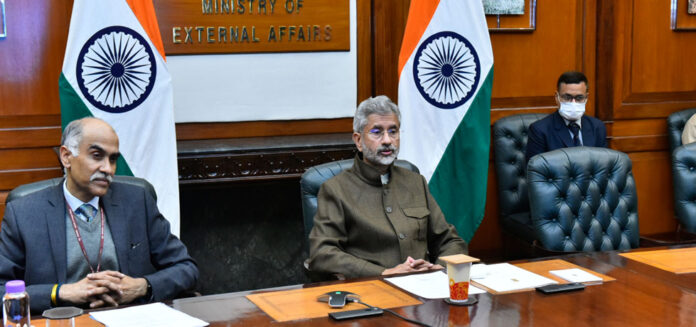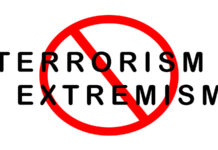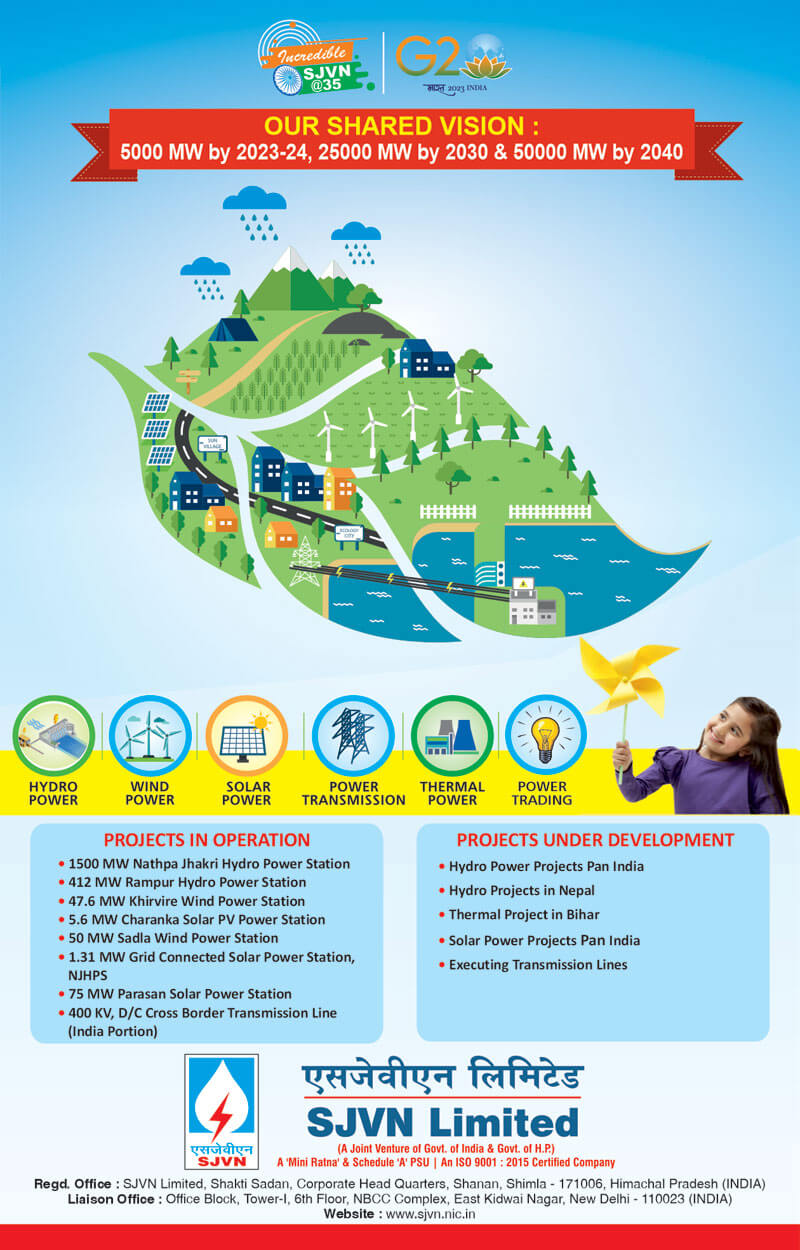Covid-19 has accelerated the global political and economic rebalancing that had been underway for the last two decades. New power equations are emerging. China’s confidence has increased many folds while the West is struggling to find answers to its external and domestic problems. The West’s unity, a constant fixture of international relations since 1945 has been fractured. The transatlantic alliance is a pale shadow of its former self. Trump’s America First policy has challenged the assumptions underlying the US alliance system. China is taking advantage of the disarray in the west and making inroads.
By Arvind Gupta
New geopolitics centring around the rise of China, the future of US hegemony, the fate of the post-world war alliance system, the efficacy of the multilateral institutions, the churn in Europe, the rising salience of the Indo-Pacific, the reshaping of the Middle East, the growing salience of technology in trade and politics and the fears of pandemics and viruses is shaping up. The trends that unfolded in 2020 will gather pace in 2021. India has been deeply affected by these changes. India-China standoff was unexpected. The pandemic is not over yet. New, more infectious virus strains have been noticed.
The Shifting Landscape
The stark contrast between Trump’s America and Xi’s China could not be greater. The US withdrew from Trans-Pacific Partnership (TPP) while China joined the Regional Economic Comprehensive Partnership (RCEP) mega trade deal and reached a landmark investment agreement with the EU after seven long years of negotiations; this will drive a wedge between US and EU. The US withdrew from the Paris Climate Change Accord while China declared that it would become carbon neutral by 2060. The US pulled out of the WHO even as China promised a USD 2 billion contribution to the organisation. The US left the Human Rights Council while China was elected to it despite its questionable human rights record. While the US was struggling with its infrastructure initiatives, China was expanding the Belt and Road initiative (BRI) to include a Digital Silk Route and a Health Silk Road. The US continued to spurn Russia, China was strengthening its alliance with it. The US has lost nearly half a million lives to coronavirus in less than a year while China advertised its efficient handling of the coronavirus crisis. China happily filled the global space that the US was vacating under Trump. The message from China was that the US is weakening and China is strengthening.
Arguably, the US-China impacts the entire world. Both the US and China are in the process of recalibrating their policies. Biden victory has produced new uncertainties in US-China relations. Biden has promised to restore American supremacy in the world. His broad strategy seems to be to repair the US alliance system, restore US hegemony, reassure the allies, deal with the covid mess at home and restore the economy to health. Each of these tasks is difficult though not impossible. The nature of the China challenge is well understood by Biden. But his strategy to deal with it will be different from that of Trump. Trump adopted a confrontationist approach to China and sought to impose massive tariffs on imports from China. In contrast, Biden is likely to engage China and even cooperate in some areas like Climate Change.
In China’s estimation, the US is hell-bent to block its rise. China would not like this to happen. China, which has been rattled by Trump’s hard-line approach, will be looking forward to Biden easing the pressure somewhat by moving to engagement from confrontation. For China, the substantial decoupling from the West is a nightmare scenario. China is trying its best to keep the American companies and their investment within China. So far, the decoupling has been only limited. Nevertheless, China has announced a ‘dual circulation’ strategy which aims to capitalise on global engagement as well as domestic market. In short, China is also bringing in the elements of self-reliance in its strategy. To ward off any US efforts to change the Chinese political and economic system, President Xi Jinping has hardened the domestic line and everyone is being made to follow the party ideology strictly. Jack Ma, the iconic Chinese private entrepreneur, the founder of Chinese global giant company Alibaba, a darling of the west, has been punished by the Chinse government for perceived deviation from the party line.
A new Cold War is beginning to take shape although its character is likely to be different from the US-USSR Cold War of the 20th century because of the close intertwining of US and China relations. The role of Europe in the emerging China-US confrontation is ambiguous. Russia is firmly with China. Japan is in alliance with the US and is under great pressure from China but it maintains close trade links with it. ASEAN looks towards the US for security but is tied to China economically and commercially. Thus, the contest between the two major powers will not be a straightforward one yet some loose camps may be formed with some countries finding themselves on both sides. Non-alignment is unlikely but neutrality is possible as a strategy.
China and the US are likely to compete and confront each other in political, economic, commercial, technological, military and information domains. Due to the complexity of their interactions, the nature of the contest will not be clear-cut. They are likely to grapple with each other like well-matched wrestlers with both trying to get the better of the other. The contest will be long and there would be many twists and turns in the saga. The world will be watching with great interest what policies Biden adopts to contain the China challenge at a time when the American society is polarised and US influence in the world has weakened. Will the US follow a China containment policy to stave off the China challenge to its supremacy?
The world is also seeing regional rebalancing at a massive scale. With the signing of Abraham accords, the Middle East is being transformed. More and more countries are trying to normalise relations with Israel in the hope of dealing with Iran challenge. At some point in time, Saudi Arabia may normalise its relations with Israel. The net result is that Iran-Saudi rivalry is becoming more acute.
Turkey is trying to regain the glory of the Ottoman Empire. Its role in regional conflicts is increasing. A new axis of Turkey-Iran-Russia-Pakistan is in the making. The rivalry between Turkey and Israel, between Turkey and Saudi Arabia is also sharpening. Tensions in the Mediterranean region have increased. Although Turkey is a member of NATO, its relations with the West are highly strained. The US has sanctioned Turkey for the purchase of S 400 missile defence system from Russia. New hotspots are emerging in North Africa. The ISIS may have been defeated militarily, its radical ideology continues to exert influence across the region and beyond.
During the Covid year, global oil demandfell sharply. This has put tremendous pressure on the revenues of the Midddle East countries. Saudi Arabia is trying to diversify its economy and it has sought to seek a role for itself in G20. Trump had walked out of the JCPOA. It remains to be seen whether Biden will re-engage with Iran on the letters nuclear program and so on what terms and conditions. As usual, the Middle East will remain in churn and continue to throw surprises.
China sees the geostrategic concept of the Indo-Pacific and the Quad as a US attempt to contain China. With Biden’s victory doubts are being expressed whether the new administration’s commitment to the concept of Indo-Pacific will remain as strong as that of Trump. It remains to be seen whether some momentum which the Quad got in 2020 will continue in 2021.
Technology is playing an increasingly important role in global rebalancing that is underway. Technology underpins the US-China contest. Having realised the importance of technology, China is racing ahead to achieve supremacy in emerging strategic technologies. It has made substantial and impressive gains in artificial intelligence, space, quantum computing, drones and deep sea bed mining technologies. It also dominates the global value chains for critical materials. The recently concluded trade agreement between the EU and China will facilitate greater cooperation between the two sides. It remains to be seen how China gains by greater access to Europe in high-technology.
In addition to information and data, the mastery of heath and food issues is being strategised. China is preparing itself for likely global food shortages in 2030. That is advance thinking. Vaccines have emerged as a new tool of domination. During the pandemic crisis, technology was harnessed to invent the vaccines against the pandemic. While on the one hand, the race for vaccines brought forth international cooperation in a scientific and technical field, vaccine nationalism also rose its head. Those countries which did not pay heed to the advice of scientists had to pay a higher price in dealing with the pandemic. Apart from health, the advances in artificial intelligence, space technology, renewable energies et cetera are destined to change the shape of the world.
The global economy took a hard knock during the year due to the Covid. The global recovery is likely to be a slow process. The pandemic has brought forth the shortcomings of globalisation. Hundreds of millions of jobs were lost and the poverty alleviation gains of several decades have been wiped out in many countries. Trade, tourism, entertainment, sports and many other sectors benefited immensely from globalisation have suffered acutely during the crisis. Countries closed borders and put severe restrictions on the movement of goods and people. Yet, this was the year when the RCEP, the world’s biggest comprehensive economic partnership agreement was signed. The US is not a part of the RCEP. China would be the major gainer of the agreement.
During the present time of great churn, it is a matter of concern that the threat to mankind from wepons of mass destruction has been underplayed. Most arms control agreements between Russia and the US have expired. The Biden administration will have to take a view on whether or not to extend the new Strategic Arms Reduction Treaty (START) with Russia. The growing military and missiles arsenal of China is outside any international agreements. That is a matter of concern.
Multilateralism has suffered a hadblow and a call for reformed multilateralism has been sounded by many countries. The covid crisis showed that the world needs not less but more of multilateralism but this must be based on caring and sharing principles rather than validating the multilateralism based on Power.
This article first appeared in www.vifindia.org and it belongs to them. The author is a research associate with VIF.












